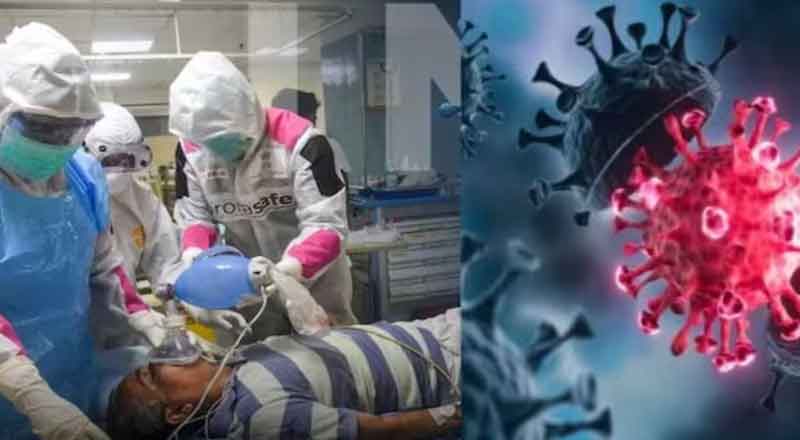- AstraZeneca, the British pharmaceutical titan, has publicly acknowledged the rare but potentially severe side effects associated with its Covid-19 vaccine, Covishield.
- The Telegraph (UK) reported that the vaccine can trigger a condition leading to blood clots and low platelet count, as revealed in court documents.
- Covishield, a product of the collaboration between AstraZeneca and Oxford University was manufactured by the Serum Institute of India and extensively deployed across the country.
- AstraZeneca conceded in court documents that Covishield can, “in very rare cases, cause TTS (Thrombosis with Thrombocytopenia Syndrome)”.
- TTS, a rare but serious blood clot disorder, manifests through blood clots and a diminished platelet count, posing significant health risks to affected individuals.
In a significant reversal, AstraZeneca, the British pharmaceutical titan, has publicly acknowledged the rare but potentially severe side effects associated with its Covid-19 vaccine, Covishield. This admission comes amidst mounting scrutiny and legal challenges, with The Telegraph (UK) reporting that the vaccine can trigger a condition leading to blood clots and low platelet count, as revealed in court documents.
Covishield, a product of the collaboration between AstraZeneca and Oxford University during the tumult of the pandemic, was manufactured by the Serum Institute of India and extensively deployed across the country. However, the recent revelations have cast a shadow over its safety profile, prompting concerns among both healthcare professionals and the public.
AstraZeneca finds itself embroiled in a class action lawsuit in the UK, where aggrieved individuals in as many as 51 cases have brought forth claims of deaths and severe injuries allegedly caused by the vaccine. The claimants, seeking damages up to a staggering 100 million pounds, have raised alarm bells, compelling AstraZeneca to confront the issue head-on.
The first complainant in the lawsuit, Jamie Scott, recounted a harrowing ordeal following his vaccination in April 2021, alleging a permanent brain injury resulting from a blood clot induced by the Covishield jab. AstraZeneca, while contesting these claims, conceded in court documents in February that Covishield can, “in very rare cases, cause TTS (Thrombosis with Thrombocytopenia Syndrome)”.
TTS, a rare but serious blood clot disorder, manifests through blood clots and a diminished platelet count, posing significant health risks to affected individuals. The admission by AstraZeneca sheds light on the potential gravity of the situation, prompting calls for heightened vigilance and transparency in vaccine discourse.
The evolving narrative surrounding Covishield’s side effects underscores the complexity of vaccine safety and efficacy. While the World Health Organization (WHO) acknowledges the rare association of adenovirus vector vaccines, like Covishield, with TTS, the precise causal mechanism remains elusive, necessitating further investigation and expert analysis.
As the spotlight intensifies on vaccine-induced adverse events, healthcare professionals emphasize the importance of vigilance and prompt recognition of symptoms associated with TTS. Severe or persistent headaches, blurred vision, shortness of breath, chest pain, and unusual bruising or bleeding beyond the injection site warrant immediate medical attention, serving as crucial indicators of underlying thrombotic complications.
In navigating the complex terrain of vaccine safety, the acknowledgment by AstraZeneca serves as a pivotal juncture in fostering transparency and accountability in the global fight against Covid-19. As stakeholders grapple with the ramifications of Covishield’s rare side effects, concerted efforts are imperative to safeguard public health and instill confidence in vaccination programs worldwide.
The unfolding discourse surrounding Covishield’s side effects underscores the imperative for robust regulatory oversight and enhanced pharmacovigilance mechanisms to monitor vaccine safety comprehensively. As scientific understanding evolves, policymakers and healthcare authorities must remain adaptive and responsive, prioritizing evidence-based decision-making to mitigate risks and uphold public trust in vaccination efforts.
Against the backdrop of ongoing debates and scrutiny, the acknowledgment by AstraZeneca signifies a step towards greater transparency and accountability in vaccine development and deployment. While challenges persist, concerted efforts by stakeholders across the healthcare ecosystem are essential to navigate the complex landscape of vaccine safety and efficacy, ensuring that public health remains paramount in the fight against Covid-19 and future pandemics.
(With inputs from agencies)





